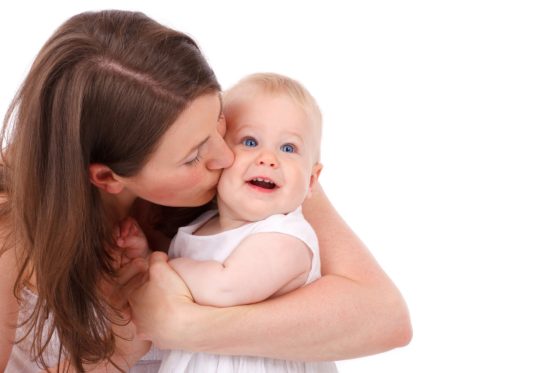Is Baby Talk Good for Your Baby?

Below, we’ll go over a few expert tips on promoting early language development, including a ruling on whether or not baby talk is good for your baby.
Contents
- Baby talk — Is it all just gibberish?
- Child-directed speech and its effect on development
- How important is it for dad to be involved?
- Premature babies and language development
- What about talking to baby in the womb?
- Developing communication: Birth to 1 year
- Developing communication: 1 year to 2 years
- Red flags: When to be concerned
Baby talk — Is it all just gibberish?
Over the last 20 years, parenting experts have argued over whether using baby talk is harmful. “Baby talk,” also known as “parentese” or “motherese,” is that sing-song, high-pitched speech with long vowel sounds that many parents use involving words like baybee, yum-yum, and doggie. While this type of speech seems to come naturally, especially to mothers, some experts believe that is it harmful to a baby’s language development.
Recent studies add to the controversy. Researchers from The University of Connecticut and the University of Washington found that baby talk has significant benefits: increased babbling in infancy and vocabulary at the age of 2, compared to parents who talk to their babies in standard speech. However, a contradictory 2015 study of Japanese babies found that babies respond better to clearer adult-type language compared to baby talk, which is often less clear.
The consensus view is that baby talk is helpful to language development in the early months, but after the first birthday it is unnecessary and confusing.
Child-directed speech and its effect on development
While the case for baby talk is controversial, what is clear from research is that a baby’s language development is related to the quality and quantity of the language that is directed to her — this is known as child-directed speech. Fascinating 2014 research published in the journal Pediatrics showed that babies do well when their parents chatted to them and responded to their efforts. From the study, titled “Gender Differences in Adult-Infant Communication in the First Months of Life”:
Mothers provide the majority of language input and respond more readily to their infant’s vocal cues than fathers. Infants show a preferential vocal response to their mothers in the first months.
Babies also responded better the closer they were to their parent. Yet another study in 2017 supports the need for close interaction, finding that babies take note of lip moments. This helps them with processing the spoken word processing. Meanwhile, a study in 2013 of low-income Spanish-speaking families concluded, “A richer language experience strengthens processing skills that facilitate language growth.”
They also found that the quality and quantity of child-directed speech improved vocabulary in the toddler years.
How important is it for dad to be involved?
While most babies respond preferentially to their mothers in the first months, it’s important that they also hear their father speak to them. Dads speak very differently to babies than moms do.
Washington State University researcher Mark VanDam explains that dads “didn’t raise their pitch or fundamental frequency when they talked to kids.” They also used more complex syntactic forms. Babies and toddlers benefit socially and emotionally, too, when they spend time with their father — especially beyond infancy.
Premature babies and language development
Ten to 15% of babies will spend some time in a hospital’s Neonatal Intensive Care Unit (NICU). This is a noisy environment — machines beeping, fans running, staff chattering in the background. Not great for early language development, as you can imagine! But research shows that premature babies develop better early vocalizations the more their own parents talk directly to them.
What about talking to baby in the womb?
We’ve all seen movies or TV shows where pregnant women will put headphones around their belly and turn up their favorite tunes for their baby to hear. Remarkably, the benefits of talking to your baby begin before birth. A 2013 University of Washington study showed that infants could tell the difference between native and foreign language in the first few hours after birth, suggesting that they are hearing and processing language from around the 30th week of pregnancy. Your entire pregnancy typically lasts 40 weeks, so that’s a lot of chatting you can do between your third trimester and birth!
See also: First Signs of Labor: How to Know When Baby is Coming
Developing communication: Birth to 1 year
A baby’s hearing is developing fast in the first months of life and what they hear influences language development.
ZeroToThree.org, a global nonprofit focused on child development, recommends that babies have a rich auditory diet: talk to her about what you are doing, sing to her, and plan quiet time. Respond to her communication attempts by giving her attention, eye contact, smiles, imitating, and replying to her efforts. If she smiles, smile back, if she cries, comfort her.
Once baby is sitting, teach her simple turn-taking games such as clapping, waving, peekaboo, and pat-a-cake. Make animal sounds while out and about or reading a book. Start to socialize her with other babies when she can sit — it’s good for her language development and your mental health. Additionally, the American Academy of Pediatrics recommends little or no television exposure for under 18 months, as it has been shown to hinder language development.
Developing communication: 1 year to 2 years
From age 1 to 2, you’ll want to use simple, grammatically correct language and expand the conversation with baby. When out on a walk you might say, “Look, there is a dog. The dog says woof-woof. The dog is brown.”
Spend quality time with baby daily to improve bonding and language skills: sing action songs, read picture books, and play turn-taking games. Teach her new words, making the consonants very clear. If she mispronounces words, don’t correct her — just repeat it back in the correct way.
Engage baby in imaginative play with toys, such as animals or dolls, and model how to play and tell stories. Avoid toys that play loud music or speech, as these can stifle imagination. Ask her simple questions and give commands, like “bring Mommy the cup, please.”
See also: The Best Speech Therapy for Cerebral Palsy
Red flags: When to be concerned
Not all children develop at the same rate, so if you are worried about your child’s language development, don’t panic: there may be a simple reason. The Centers for Disease Control and Prevention recommend that trust your instincts and get a check-up with your child’s pediatrician if you notice any of the following potential red flags:
- Problems with feeding or swallowing
- Inappropriate response to sound
- Delayed speech milestones
- Recurrent infections (ear, throat or chest)
- Failure to communicate needs with gesture or language
- Limited range of facial expressions or gestures
- Speech that is hard to understand by second birthday
- Regression (loss of a skill) of language
At Safe Birth Project, we can help you navigate your pregnancy roadmap from conception to caring for baby. Learn the foods and medicines to avoid while pregnant and more, all here on our blog. Happy reading!








Leave a Reply
Want to join the discussion?Feel free to contribute!